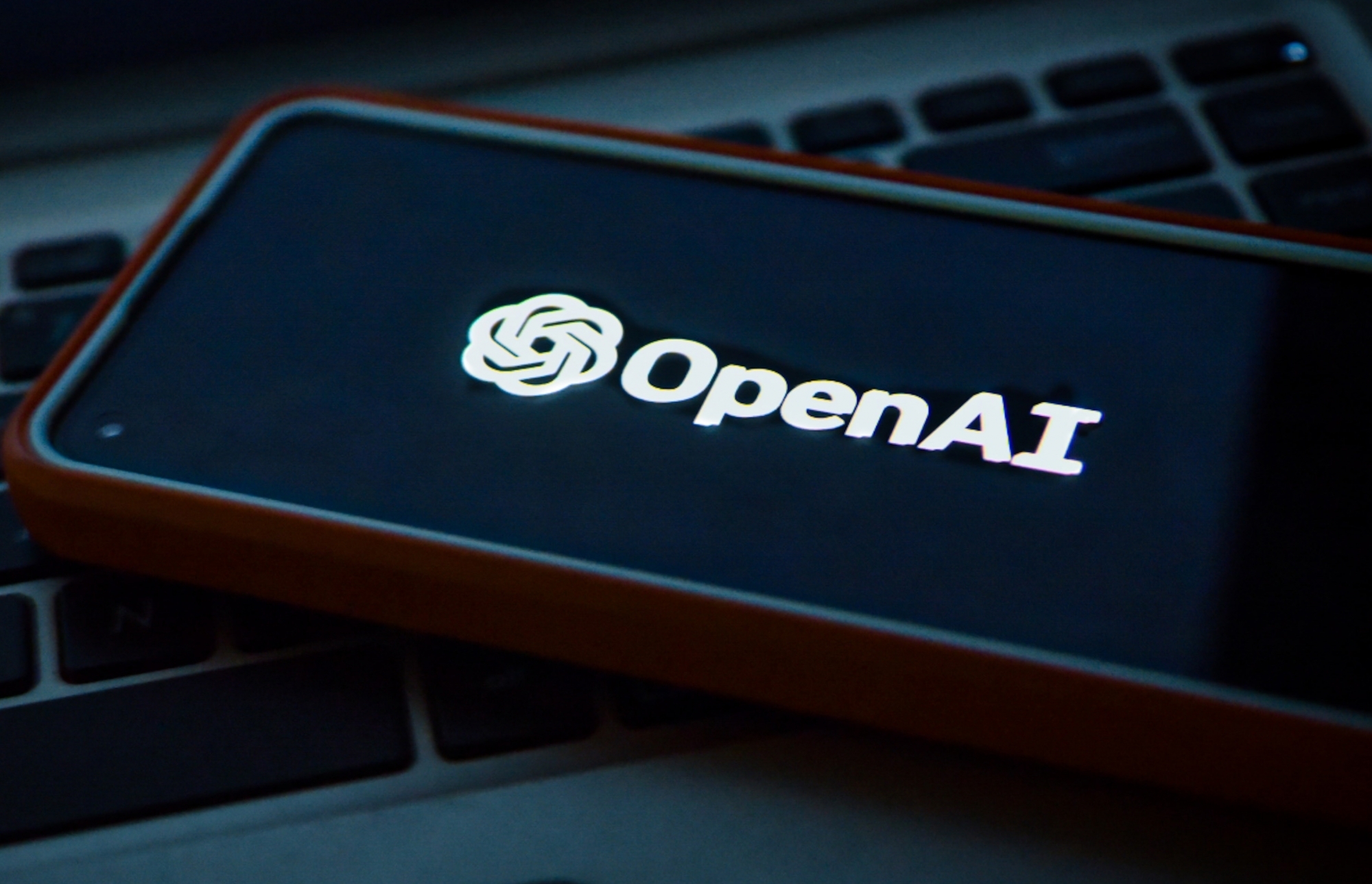FTC Probe Into OpenAI: Implications For AI Regulation

Table of Contents
OpenAI's Practices Under Scrutiny
The FTC's investigation into OpenAI casts a spotlight on several key areas of concern regarding the company's practices and the broader implications for AI regulation.
Data Privacy Concerns
OpenAI's large language models (LLMs) are trained on massive datasets, raising significant data privacy concerns. The collection and use of this data must adhere to stringent privacy regulations. Potential violations of laws such as the GDPR (General Data Protection Regulation) and the CCPA (California Consumer Privacy Act) are central to the FTC's investigation.
- Potential Privacy Breaches: The use of personal data scraped from the internet without explicit consent raises questions about potential violations of user privacy.
- Relevant Regulations: GDPR's focus on data subject rights and CCPA's emphasis on transparency and consumer control are key regulatory frameworks under scrutiny.
- Implications of Non-Compliance: Failure to comply with data privacy regulations could result in substantial fines, legal challenges, and reputational damage for OpenAI.
Algorithmic Bias and Fairness
Another critical area of concern is the potential for algorithmic bias within OpenAI's AI models. These biases, often stemming from biased training data, can perpetuate and amplify existing societal inequalities.
- Examples of Biased AI Outputs: AI models trained on biased data may exhibit discriminatory behavior, reinforcing stereotypes related to gender, race, or other protected characteristics.
- Ethical Implications: Biased algorithms can lead to unfair or discriminatory outcomes, undermining trust in AI systems and exacerbating social injustices.
- FTC's Focus on Fairness: The FTC is keenly interested in ensuring that AI systems are developed and deployed in a fair and equitable manner, free from discriminatory biases.
Misinformation and Malicious Use
The potential for OpenAI's technology to be misused for spreading misinformation or engaging in malicious activities is a significant concern. The sophisticated capabilities of these models can be exploited for harmful purposes.
- Potential Misuse: LLMs can be used to generate convincing fake news, spread propaganda, or create sophisticated phishing attacks.
- Mitigating Risks: Developing effective safeguards against the malicious use of AI is a complex challenge requiring ongoing research and collaboration.
- FTC's Role in Consumer Protection: The FTC plays a critical role in protecting consumers from harmful AI applications and ensuring that AI is used responsibly.
The Broader Implications for AI Regulation
The FTC's probe into OpenAI underscores the urgent need for a comprehensive regulatory framework for AI.
The Need for Comprehensive AI Legislation
The OpenAI investigation highlights the lack of clear and comprehensive AI regulations. The rapid pace of AI development necessitates a proactive regulatory approach.
- Arguments for Stricter Regulation: Proponents argue that stricter regulations are crucial to mitigate risks associated with AI, such as bias, privacy violations, and misuse.
- Existing and Proposed Legislation: Several countries and regions are exploring different legislative approaches to AI regulation, each with its own strengths and weaknesses.
- Challenges in Regulating Rapidly Evolving Technology: Keeping pace with the rapid advancements in AI technology poses a significant challenge for regulators.
Balancing Innovation and Consumer Protection
Finding the right balance between fostering AI innovation and ensuring consumer protection through regulation is crucial. Overregulation could stifle innovation, while inadequate regulation could lead to significant harm.
- Potential Impact of Overregulation: Excessive regulation could hinder the development and deployment of beneficial AI applications.
- Strategies for Responsible AI Development: Promoting responsible AI development requires a collaborative effort between industry, researchers, and policymakers.
- Industry Self-Regulation: While government oversight is necessary, industry self-regulation can play a crucial role in promoting ethical AI practices.
International Cooperation on AI Governance
The global nature of AI necessitates international cooperation to establish global standards for AI ethics and regulation.
- Challenges in Achieving International Consensus: Reaching a global consensus on AI regulation can be challenging due to differing national priorities and regulatory frameworks.
- Benefits of Global Collaboration: International collaboration can facilitate the development of consistent and effective AI regulations, promoting global safety and security.
- Existing International Initiatives: Several international organizations are working to foster collaboration on AI governance, including the OECD and the UN.
Potential Outcomes of the FTC Probe and Future of AI Regulation
The FTC's investigation into OpenAI could have significant consequences for the company and the broader AI landscape.
Possible Penalties and Sanctions
If OpenAI is found to have violated regulations, it could face a range of penalties and sanctions.
- Range of Possible Penalties: Potential penalties could include substantial fines, restrictions on operations, and mandated changes to OpenAI's data handling practices.
Shaping the Future of AI Development
The outcome of the FTC's probe will likely shape the future of AI development and deployment.
- Shifts in Industry Practices: The investigation could lead to significant shifts in industry practices, with a greater emphasis on data privacy, algorithmic fairness, and AI safety.
- Increased Focus on Ethical Considerations: The investigation will likely reinforce the importance of incorporating ethical considerations into all stages of AI development and deployment.
- Accelerated Development of AI Safety and Governance Frameworks: The FTC's probe could spur the development of more robust AI safety and governance frameworks.
Conclusion: FTC Probe into OpenAI: Implications for AI Regulation
The FTC's probe into OpenAI highlights critical concerns regarding data privacy, algorithmic bias, and the potential for misuse of AI technologies. This investigation underscores the urgent need for a robust regulatory framework to ensure responsible AI development and deployment. The future of AI hinges on striking a balance between fostering innovation and protecting consumers. Stay informed about the ongoing FTC probe into OpenAI and the evolving landscape of AI regulation by following [link to relevant resource/website]. Understanding the implications of this investigation is crucial for navigating the complex ethical and legal challenges presented by the rapid advancement of artificial intelligence. The responsible development and deployment of AI requires continued dialogue, collaboration, and a commitment to ethical AI practices.

Featured Posts
-
 Ergebnisse Lotto 6aus49 Vom 12 April 2025 Ueberpruefen Sie Ihren Tipp
May 08, 2025
Ergebnisse Lotto 6aus49 Vom 12 April 2025 Ueberpruefen Sie Ihren Tipp
May 08, 2025 -
 Fetterman Pushback On Ny Magazines Fitness For Duty Allegations
May 08, 2025
Fetterman Pushback On Ny Magazines Fitness For Duty Allegations
May 08, 2025 -
 Andor Cast A Behind The Scenes Look At The Rogue One Prequel Series Finale
May 08, 2025
Andor Cast A Behind The Scenes Look At The Rogue One Prequel Series Finale
May 08, 2025 -
 Former Uber Ceo Kalanick Specific Decision Was A Wrong Turn
May 08, 2025
Former Uber Ceo Kalanick Specific Decision Was A Wrong Turn
May 08, 2025 -
 The Long Walk Trailer A Chilling Look At An Intense Thriller
May 08, 2025
The Long Walk Trailer A Chilling Look At An Intense Thriller
May 08, 2025
